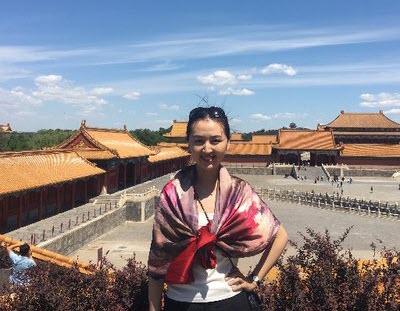Venue/Time: 21 June 2023, University of Manchester
Network: AdvanceHE_GTA Developers Network
Who: Dangeni, Professional Development Adviser, LTDS
In the ever-evolving landscape of higher education, Postgraduates who teach, including Graduate Teaching Assistants (GTAs) play a crucial role in shaping the academic experience of countless students. These passionate educators form the backbone of university classrooms, bringing fresh perspectives and knowledge to enhance the learning environment. My role as a Professional Development Adviser at LTDS involves delivering workshops to postgraduates who teach at Newcastle University, supporting their professional development through the various modules and pathways we offer, e.g. ILTHE and ELTS.
I had the opportunity to attend the Graduate Teaching Assistants Network event at the University of Manchester in June, which brought together researchers and practitioners from different UK universities to share insights and support each other in promoting and developing GTA support. This blog post summarises the highlights and reflections from this enriching experience.
Prior to the event, the organisers facilitated the sharing of materials, resources, ideas and approaches related to GTA development from across the institutions, which can be widely disseminated to various key stakeholders working with GTAs. For example, a practical guide New to Teaching Geography, which offers a starting point for graduate teaching assistants, teaching fellows and demonstrators. Another great example is around measuring the effective teaching through designing a Teaching Observation Form based on undergraduate feedback. These resources already and will benefit GTAs by unpacking the hidden curriculum of teaching and providing practical suggestions for GTAs to take away and implement in their own contexts; it’s also valuable for practitioners like me to reflect on and embed the effective and good practice in our current provision.
What happened on the day
The session began by reflecting on our roles and perspectives, e.g. where we work centrally or in a department, in an academic contract or as professional service staff, is supporting GTAs a core element of our role or something we do in addition to our day-to-day work, understanding that institutional differences and the different roles we play in supporting PgRs with teaching responsibilities require more in-depth discussion and frequent communication to share effective practices and reflect together on potential challenges.
We had key themes running through the day-long programme, such as:
- Supporting GTAs within departments, faculties and disciplines across institutions.
- The new PSF and its implications for accredited programmes.
- Developments in GTA professional learning.
As our Academic Practice Team is working on the reaccreditation, the second theme provide helpful information regarding support and guidance, such as Advance HE PSF 2023 Associate Fellowship Guidance, Calibration events and Accreditation Policy 2023 (and guidance). The key changes were highlighted regarding D1, Associate Fellow, i.e., for individuals whose practice enables them to evidence some Dimensions. Effectiveness of practice in teaching and/or support of learning is demonstrated through evidence of:
D1.1. Use of appropriate Professional Values, including at least V1 and V3
D1.2 Application of appropriate Core Knowledge, including at least K1, K2 and K3
D1.3 Effective and inclusive practice in at least two of the five Areas of Activity
Inclusion and EDI were mentioned, highlighted and discussed throughout the day, including a workshop on Equality, Diversity and Inclusion by colleagues from the University of Sheffield. This training material is a practical tool for GTAs and us to explore prejudice and discrimination and describe how it can occur in everyday teaching and learning contexts.
My presentation
I presented and shared how we support GTAs through formal programmes and a recently established informal community building event at Newcastle University. In running ILTHE and ELTS and gathering feedback from participants, we found that workshop participants wanted the opportunity to continue to engage with teaching practice and develop their teaching skills after the workshops. This online community has been created based on my teaching experiences as an international GTA and my previous research projects, which looked at GTA, peer-mentoring and researcher development.
What did I think of the day?
The day was packed with insightful, exciting and innovative presentations from colleagues and GTAs from different institutions. I also had many useful resources to take away and great discussions with colleagues to reflect on. Thank you for taking the time to read this GTA-themed blog post. Please get in touch at apt.lts@newcastle.ac.uk if you’d like to chat about our pathways and your practice!
If you are interested in finding out more about the modules and pathways we offer here at Newcastle, check out the following links:
Introduction to Learning and Teaching in Higher Education (ILTHE)
Evidencing Learning and Teaching Skills (ELTS)
Professional Development (Learning and Teaching @ Newcastle website)
Meet Dangeni!

I am a Professional Development Adviser in the Academic Practice Team at LTDS. My teaching and research focus broadly on the teaching and learning provision in the wider context of the internationalisation of higher education.
I am particularly interested in research and practices around international students’ access, engagement and success in postgraduate taught (PGT) and postgraduate research (PGR) settings.
